POPULATION
2,737,829
CURRENCY
QATARI RIYAL
TIMEZONE
GMT +3:00
LANGUAGE
ARABIC
WEATHER
JULY 36ºC /
JANUARY 18ºC
AIRPORTS
Hamad International Airport
Doha International Airport
HISTORICAL IMPORTANCE OF DOHA
Doha, the capital city of Qatar, holds significant historical importance as a center of trade and pearl diving in the Persian Gulf region. Historically, Doha served as a prominent hub for fishing and pearling communities, contributing to Qatar's economy and cultural heritage. The city's strategic location on the eastern coast of the Arabian Peninsula facilitated maritime trade routes, connecting it with neighboring Gulf states and beyond. Over the years, Doha evolved from a small fishing village into a modern metropolis, spurred by the discovery of oil and subsequent economic diversification efforts. Today, Doha stands as a symbol of Qatar's rapid development, blending its rich cultural history with contemporary architecture, vibrant cultural institutions, and a thriving business environment.
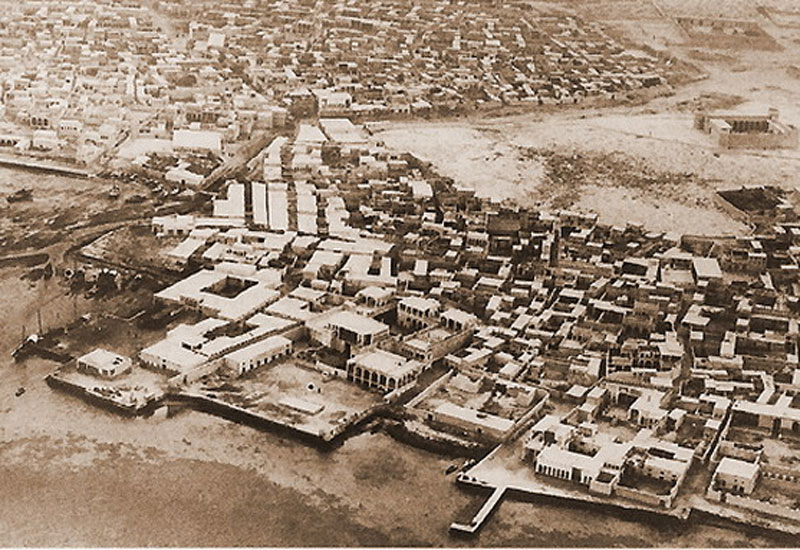
Why is Doha the capital of Qatar?
Doha became the capital of Qatar due to its strategic location, economic significance, and historical development. Situated on the eastern coast of the Arabian Peninsula along the Persian Gulf, Doha historically served as a trading hub and fishing village. Its location made it a natural center for maritime trade and interaction with neighboring Gulf states. As Qatar's economy diversified beyond fishing and pearling, Doha emerged as a focal point for economic activities, government administration, and cultural development. The discovery of oil in Qatar further accelerated Doha's growth and transformation into a modern city, prompting the establishment of government institutions, diplomatic missions, and infrastructure projects that solidified its status as the political and economic capital of Qatar. Today, Doha continues to play a pivotal role in Qatar's development, serving as a dynamic hub for commerce, culture, education, and diplomacy in the Gulf region.
WHEN IS THE BEST TIME TO VISIT DOHA?
The best time to visit Doha is during the winter months, from November to April, when the weather is milder and more comfortable for outdoor activities. During this period, temperatures are cooler, ranging from around 20°C to 25°C (68°F to 77°F), making it ideal for exploring outdoor attractions such as the Corniche, Souq Waqif, and cultural sites. This time also coincides with various events and festivals, including the Qatar National Day celebrations in December and the Doha Jewellery & Watches Exhibition in February, offering visitors a vibrant cultural experience. It's advisable to avoid the summer months (June to September) due to extremely hot temperatures that can exceed 40°C (104°F), making outdoor activities challenging.
TRANSPORTATION TO ABU DHABI
Traveling to Doha, the capital city of Qatar, can be done via various means depending on your starting location. If you're coming from abroad, the most common and convenient option is to fly into Hamad International Airport, which serves as a major international hub with connections to numerous global destinations. For those already in the Middle East, there are also options for traveling by bus or car. Qatar has well-developed road networks and a modern bus service that connects major cities and regions. Additionally, for a more luxurious option, private transfer services and taxis are readily available to ensure a comfortable journey to your destination in Doha.
SAFEST COUNTRY IN THE WORLD
Qatar is widely recognized as one of the safest countries in the world, boasting low crime rates and a stable social environment. The country's commitment to security and safety is evident through rigorous law enforcement measures, effective public safety initiatives, and stringent regulations. Qatar's leadership prioritizes maintaining a secure environment for residents and visitors alike, contributing to its reputation as a peaceful destination in the Middle East. The low incidence of crime, coupled with a high standard of living and modern infrastructure, makes Qatar a preferred choice for expatriates, tourists, and businesses seeking a secure and stable environment.
THINGS TO DO AND PLACES TO VISIT
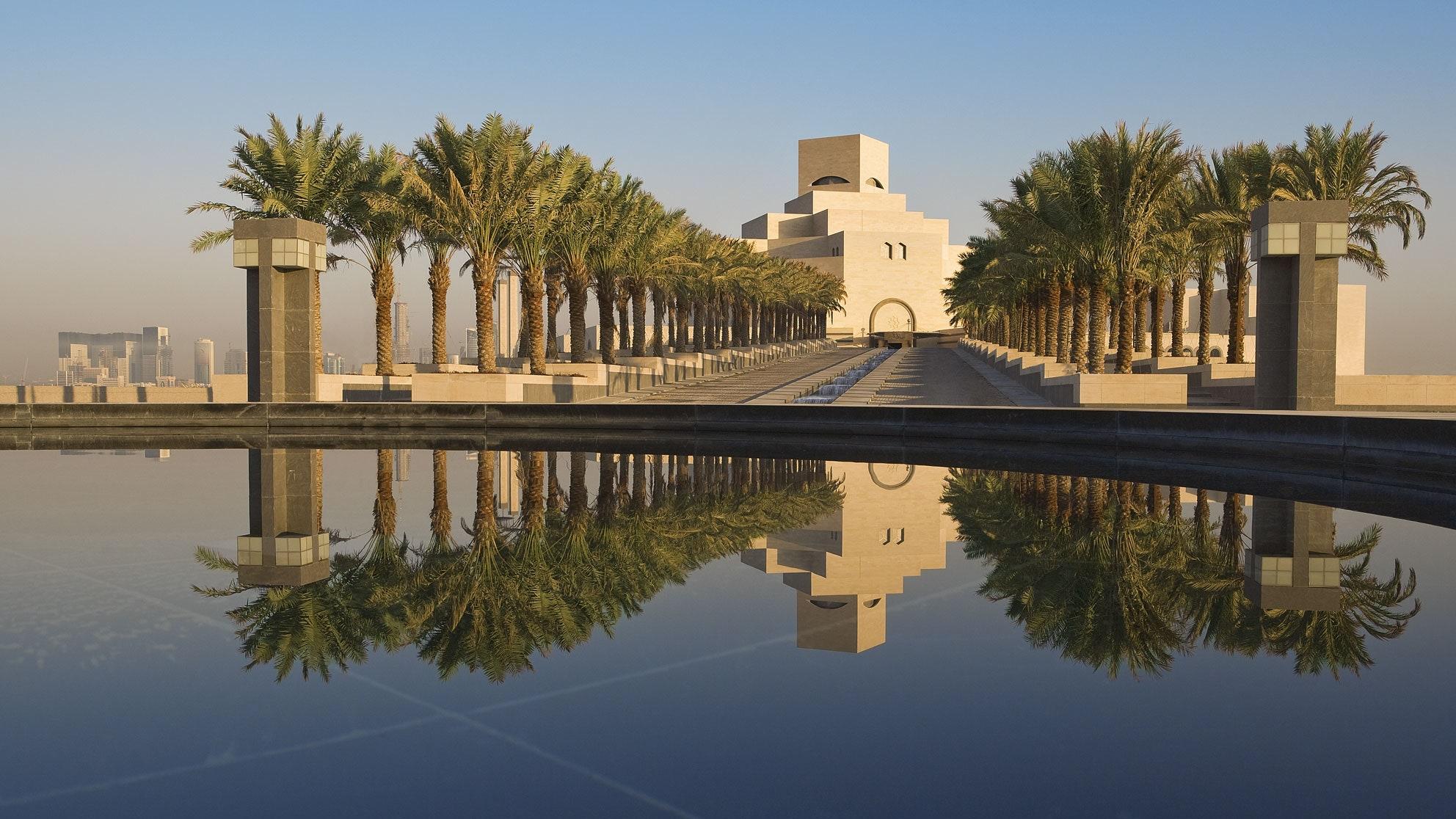
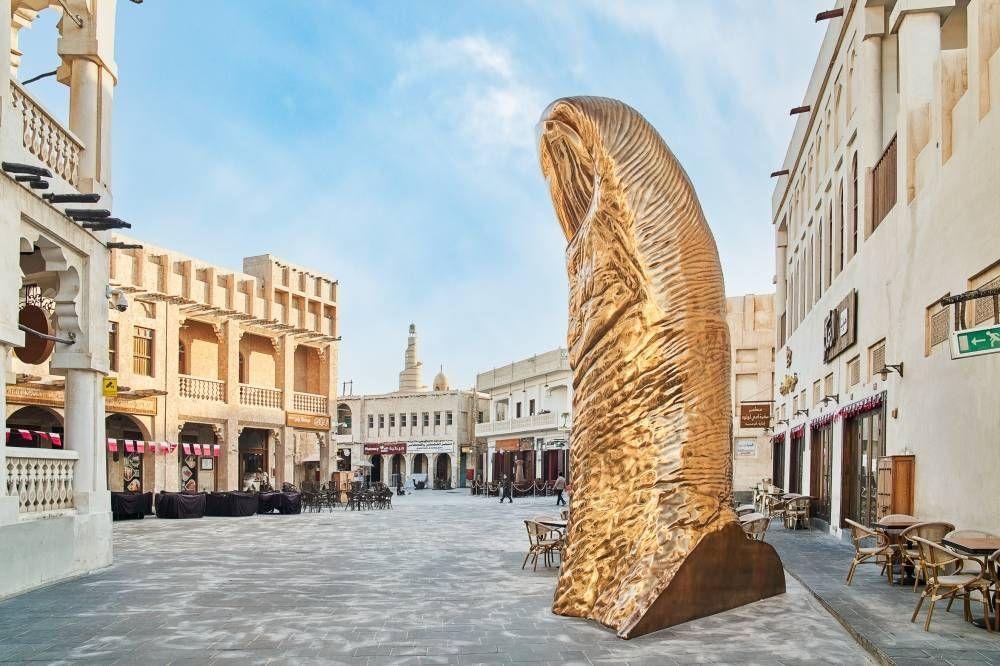
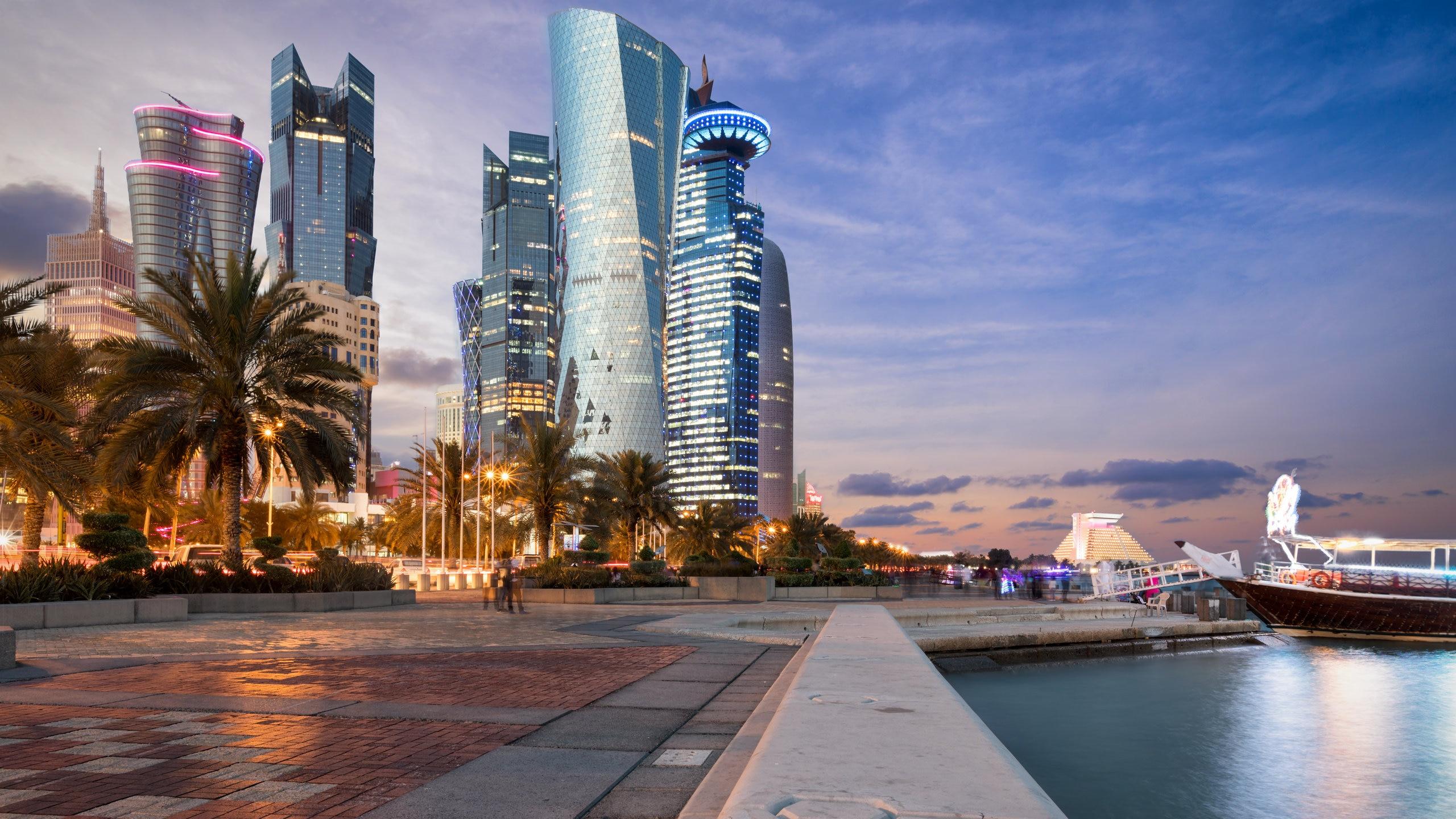

WHAT TO EAT IN DOHA

HAREES
Harees is a traditional dish popular in Qatar and across the Arabian Gulf region, particularly during Ramadan and special occasions. It consists of a simple yet hearty blend of cracked wheat (also known as bulgur wheat) and meat, usually chicken or lamb. The dish is prepared by slow-cooking the wheat and meat together over a long period until the grains soften and the meat becomes tender and infused with the flavors of spices like cinnamon, cardamom, and sometimes saffron. The result is a smooth, porridge-like texture that is creamy and comforting, often served hot with a drizzle of ghee (clarified butter) and garnished with nuts such as almonds or pine nuts. Harees is not only cherished for its delicious taste but also valued for its cultural significance, symbolizing hospitality and community gatherings, especially during festive occasions and Ramadan iftars (breaking of the fast).

KABSA
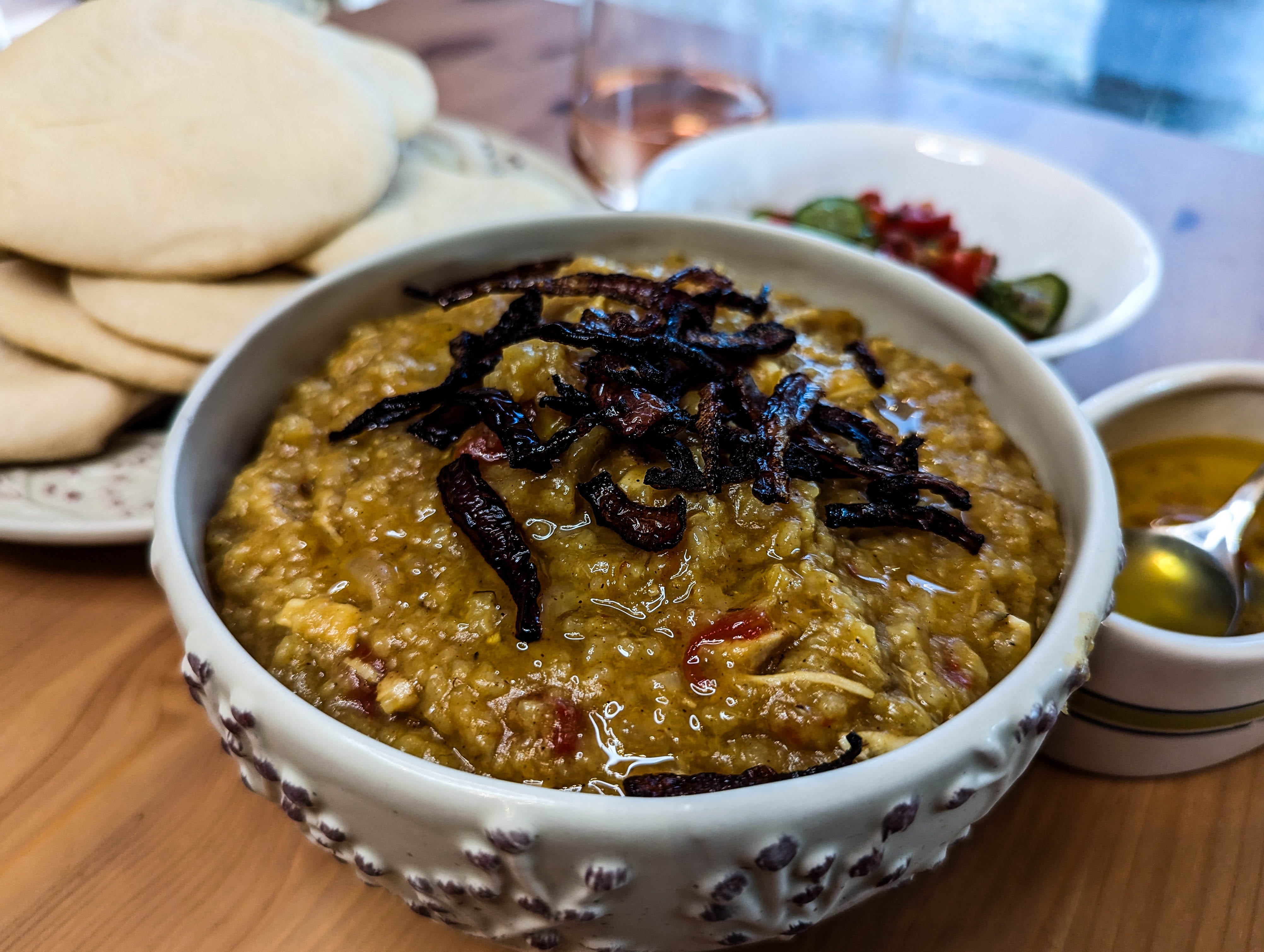
MADROUBA

UMM ALI
Umm Ali is a delectable dessert that originates from Egypt but is widely enjoyed across the Middle East, including in Qatar. It is a rich and comforting bread pudding-like dish made with layers of puff pastry, milk, cream, nuts (such as almonds and pistachios), and sometimes raisins. The pastry is typically soaked in sweetened milk or cream, allowing it to absorb the flavors and become soft and creamy. Umm Ali is then baked until golden and served warm, often garnished with a dusting of powdered sugar and additional nuts on top. It is loved for its indulgent, comforting flavors and is a popular choice for desserts during festive occasions, family gatherings, and special celebrations in Qatar.
HOW MANY DAYS SHOULD YOU SPEND IN DOHA?
The ideal duration to spend in Doha largely depends on your interests and the purpose of your visit. For a comprehensive experience, a stay of around 3 to 4 days is recommended. This allows you to explore the city's key attractions such as the Museum of Islamic Art, Souq Waqif, Katara Cultural Village, and the Corniche. You'll have ample time to enjoy shopping at modern malls like Villaggio Mall and explore traditional markets for local crafts and souvenirs. Additionally, you can indulge in Qatar's diverse culinary scene, from traditional Qatari dishes to international cuisine. If you wish to include day trips to nearby attractions like the desert or historical sites, extending your stay to 5 to 7 days would provide a more relaxed and immersive experience of both Doha and its surroundings.
